How to Help a Guinea Pig Gain Weight
Guinea pigs are well-known and adored for their plump, bean-like bodies. That’s why it can be distressing to discover that your guinea pig has lost weight.
If your piggies appear underweight with seemingly no explanation, it’s important to take action immediately. Shedding pounds may indicate health problems with your guinea pig, but with careful attention and patience, it can be easily remedied.
Read on to learn the proper weight for a guinea pig, reasons yours could be losing weight, and how you can help them regain it in the healthiest and safest way possible.
How Do You Know If Guinea Pig Is Too Skinny?
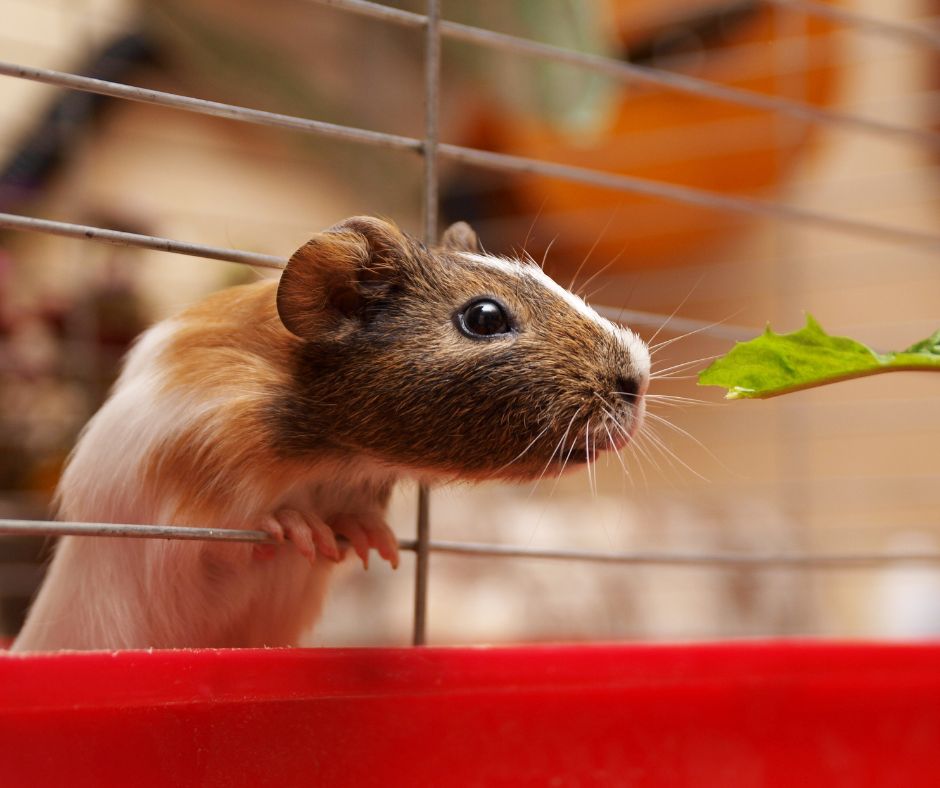
A guinea pig is considered too thin if you can easily see and feel its rib cage, hip bones, or spine. If you notice that your piggie is eating less and these bones are protruding from the skin, it may be time to schedule a vet visit.
On average, a healthy weight for an adult cavy is:
● 900-1,200 grams for males
● 700-900 grams for females
You should routinely weigh your piggies at least once a week. If your guinea pig is thinning, you must monitor their weight daily.
A guinea pig that loses more than 80-100 grams could be sick. If they lose more than 200, they need to see a vet quickly. Sudden and extreme weight loss is not healthy for guinea pigs and signals that medical attention is needed.
Why Is Your Guinea Pig Losing Weight?
Many things can contribute to a guinea pig’s weight loss, but some can be more serious than others. Here are a few of the most common that will require immediate attention.
Dental Problems
The status of a guinea pig’s dental health can greatly contribute to its overall appetite.
Malocclusion is common in cavies and can cause a lot of pain and discomfort as they eat. If your guinea pig has crooked teeth, an overbite, or an underbite, chewing can become an agonizing challenge.
Eventually, it may decide not to eat at all, leading to sudden weight loss.
Scurvy
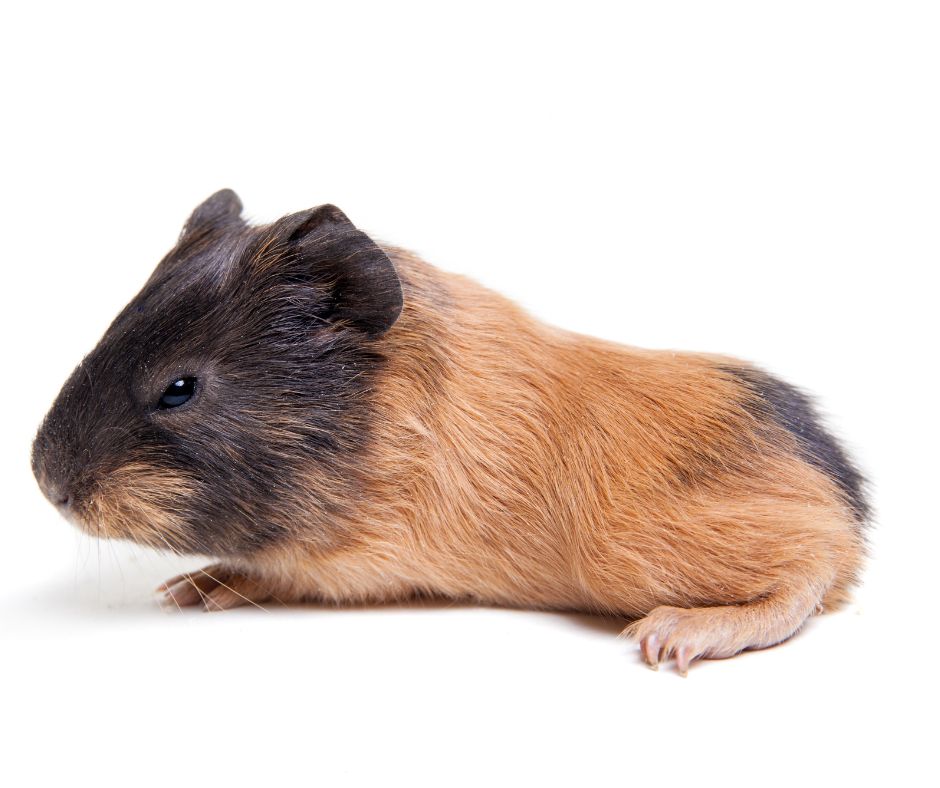
Scurvy, a disease caused by a lack of Vitamin C, is another common explanation for guinea pig weight loss. This deficiency also brings an array of undesirable symptoms like hair loss, lethargy, and blood clots.
Underlying Diseases
Weight loss in cavies can be contributed to underlying causes like urinary tract infections or respiratory illness. Look for other symptoms related to these conditions such as eye discharge, labored breathing, coughing, or blood in the urine.
Health Risks Related to Guinea Pig Weight Loss
Like most animals, cavies will avoid eating if they’re not feeling well, which translates into rapid weight loss. These dietary changes cut off their supply of essential nutrients and have the potential to cause several worrisome problems.
If a guinea pig goes without food for an extended period, liver complications, gut stasis and even death are likely outcomes.
This is why it’s highly encouraged for cavy owners to weigh their pets often and keep a record to ensure that any sudden drops in weight are quickly caught and addressed.
How to Help A Guinea Pig Gain Weight
You can help your guinea pig gain weight at home by enriching their diet with nutrient-dense foods and vitamins. If you notice significant weight loss, you’ll want to consult with your veterinarian immediately.
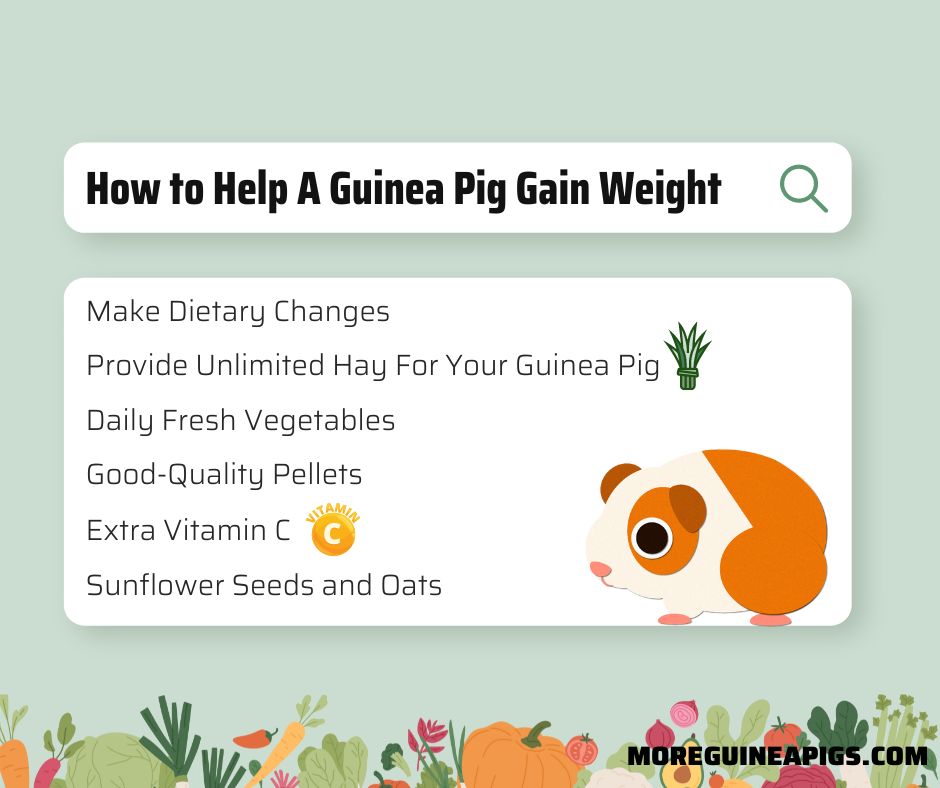
Make Dietary Changes
Creating a diet plan for your guinea pig is the easiest way to help them reach an ideal weight. Here are some meals and treats you’ll want to consider if you want your piggie pack on those pounds.
Provide Unlimited Hay For Your Guinea Pig
Not only is hay a delightful guinea pick snack, but it’s also vital to their digestive health. Not to mention it serves as a very important form of entertainment and enrichment.
These are the most common forms of hay that your piggies will love.
Malnourished and pregnant guinea pigs can greatly benefit from this vitamin-rich hay. Give as an occasional treat for an extra boost of calcium, minerals, and protein.
Readigrass is a highly palatable feed high in protein and fiber, and it’s more enticing for picky eaters. You can offer it to your guinea pig as a hay replacement or a special treat.
Unlike typical hay, oat hay has long stems with oats attached and is much higher in fiber, fat, and protein. These beneficial nutrients can be helpful for sick guinea pigs if given in small amounts.
Daily Fresh Vegetables
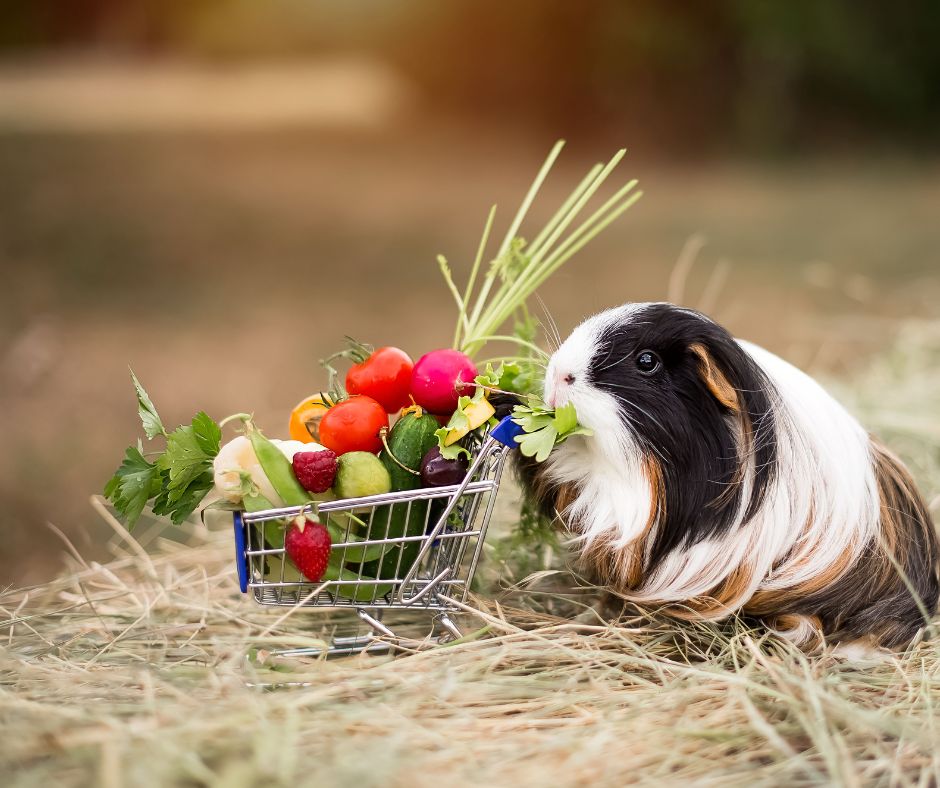
Fresh vegetables are a great addition to your guinea pig’s diet. Like us, a cavy’s body isn’t able to produce Vitamin C on its own. Vegetables are a great source of Vitamin C and a healthy treat for your pet.
Broccoli, bell peppers, and leafy greens are ideal for a well-balanced diet. Other vegetables like carrots can cause digestive upsets if fed in large amounts, so use them in moderation.
Good-Quality Pellets
Pellets are high in fiber and Vitamin C and provide balanced nutrition when supplemented with fresh fruit and vegetables.
Guinea pigs should be fed approximately ⅛ cup of pellets per day, but speak with your veterinarian if you’d like to slightly increase the serving size to help with your piggy’s weight.
You’ll have plenty of great cavy food brands to choose from. If you’re not sure where to start, Timothy Choice Pellets and Oxbow Essentials Cavy Cuisine are a couple of the most popular.
Timothy Pellets – 100% All Natural
Extra Vitamin C
An adult guinea pig requires about 30 mg of Vitamin C per day, and deficient cavies will need more. Over-the-counter supplements and chewable tablets are available to ensure every cavy receives their ideal dose of Vitamin C.
You can find these products at most pet stores, and a simple pill cutter can be used to quarter the tablets.
Sunflower Seeds and Oats
These foods are generally not recommended for guinea pigs, but their high-calorie count makes them useful when helping your piggie gain weight. Use organic shelled sunflower seeds and uncooked plain rolled oats as a nice treat.
Tips to Help Your Guinea Pig Gain Weight Safely
If your guinea pig is underweight, there are a few things you can do to help them gain weight safely. First, make sure that they are eating a nutritious diet. You can also try feeding them more frequently or offering them treats that are high in calories, such as raisins or bananas.
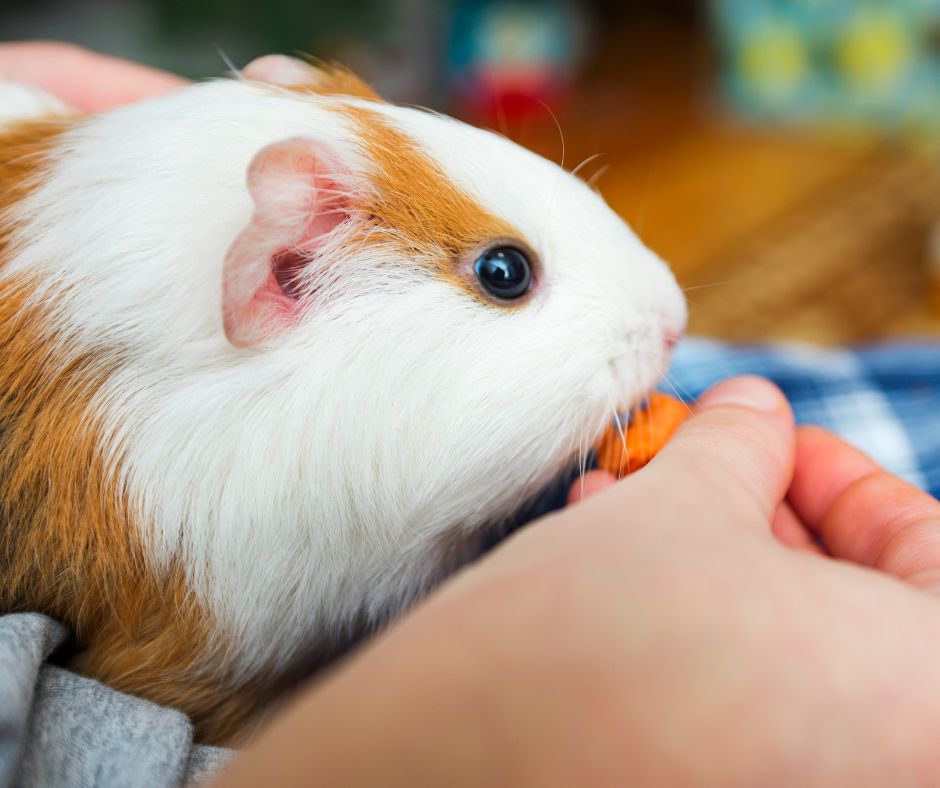
Finally, make sure that they are getting enough exercise by providing them with a large cage or play area. If you are concerned about your guinea pig’s weight, talk to a veterinarian for more advice.
1. Get Advice From Your Vet
If your guinea pig is severely underweight or having difficulty gaining weight, we highly recommend that you make an appointment with your veterinarian. Cavies have very sensitive GI tracts that can be drastically affected in 24 hours, so time is of the essence.
Consulting with your veterinarian is the safest way to identify what’s ailing your pet and find out the best way to help them. They’ll also be able to help you form a diet plan to prevent these problems from happening again.
2. Slowly Introducing New Foods to Their Diet
Guinea pigs need to be extremely careful when they introduce new foods into their diet. The fragile intestines of the guinea pig can easily upset if you give them too much, or even one small ingredient from an unhealthy source such as bread stuffing for example! Be gradual with how much transition your pet has so that everything goes smoothly without any negative effects on health
It’s always best practice before introducing anything different into our animal friend’s regular menu – this includes both hay/pellets AND treats (which should only ever come from plants). We want these transitions to be as seamless as possible for their little digestive systems, so take your time!
3. Help Your Guinea Pigs Gain Weight Slowly
If you’re ready to help your guinea pig regain some much-needed weight, it’s very important to remember that this process is best completed at a steady pace.
It’s not easy for an adult cavy to regain weight, and their bodies must adjust to any changes in their weight properly. If you try to speed up the process by overfeeding your guinea pig, it could lead to stomach complications and bowel problems.
What Is the Ideal Weight for a Healthy Guinea Pig?
There is no one “ideal” weight for a guinea pig, as there can be some variation depending on the breed. However, a good rule of thumb is that a healthy guinea pig should weigh between 700 and 1200 grams. If your guinea pig falls outside of this range, it is important to talk to a veterinarian to make sure that there are no health concerns.
| Age | Weight | Length |
| Birth | 80 to 100 grams | 2 to 3 inches |
| 4 weeks | 250 to 400 grams | 4 to 6 inches |
| 8 weeks | 400 to 650 grams | 6 to 8 inches |
| 12 weeks | 700 to 900 grams | 8 to 9 inches |
| 16 weeks | 900 to 1000 grams | 9 to 11 inches |
| 14 months | 1000 to 1200 grams | 11 to 12 inches |
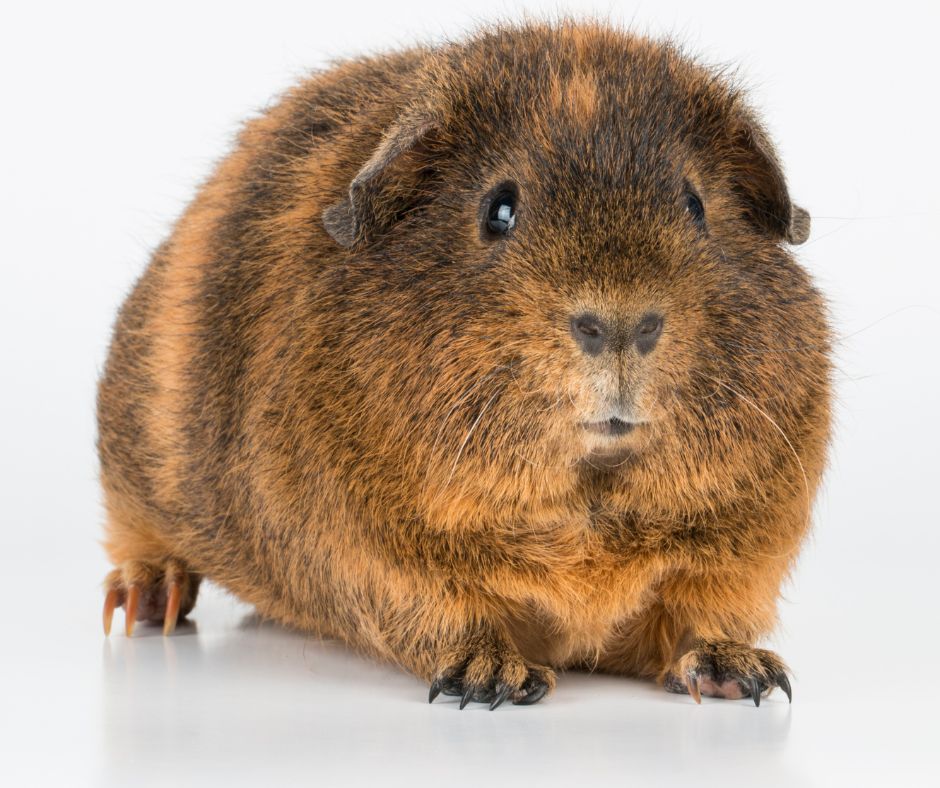
Conclusion
A sudden weight loss of guinea pigs may indicate health problems. Since their bodies aren’t configured to handle drastic weight loss in a short period, you’ll want to act quickly to avoid further problems.
Add more nutrient-rich foods to its diet like hay, vegetables, and pellets, or speak with your vet immediately to discuss the safest way to help your pet regain the weight.
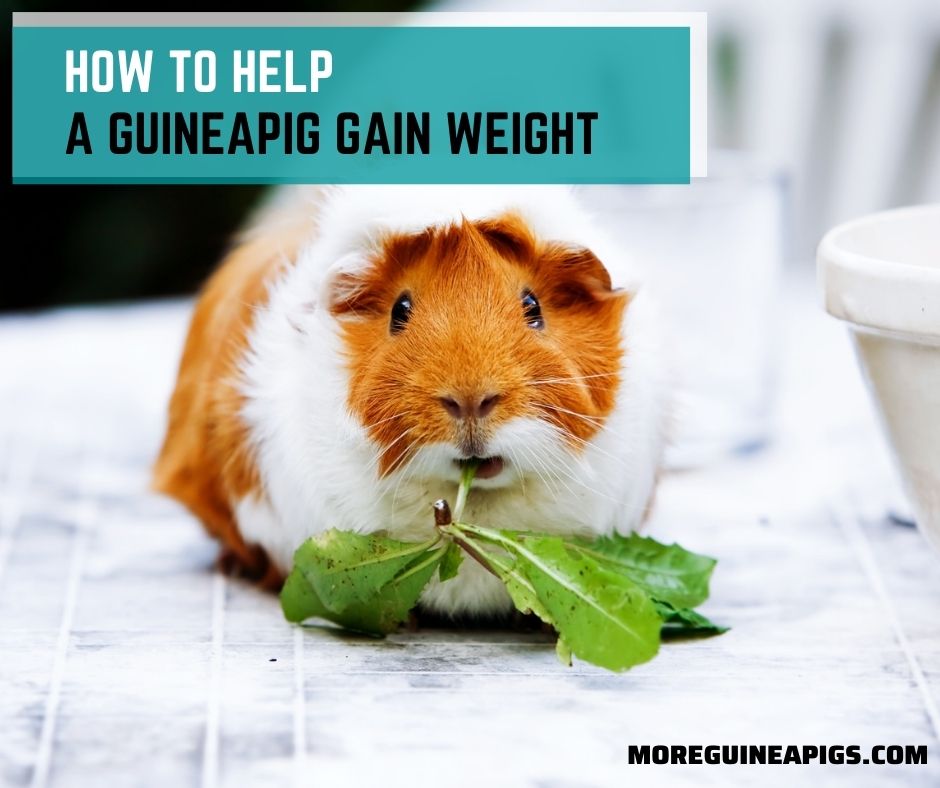

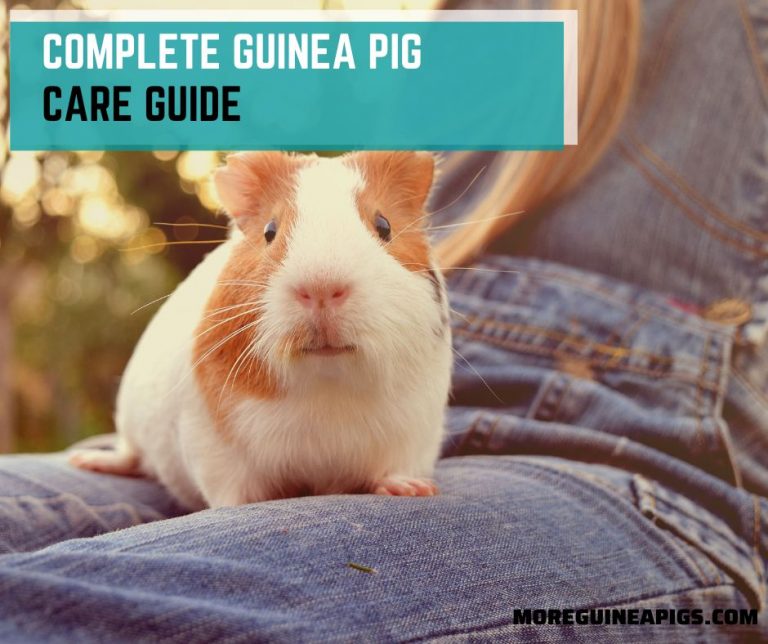
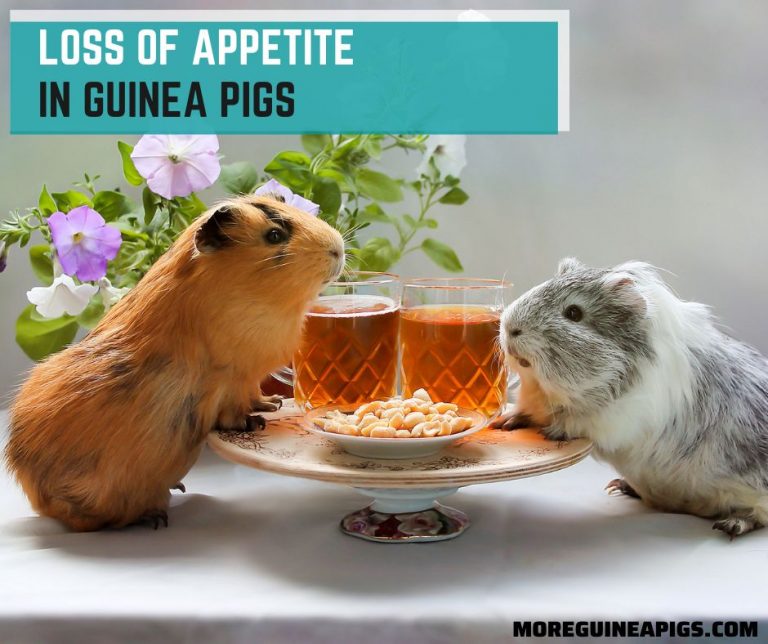


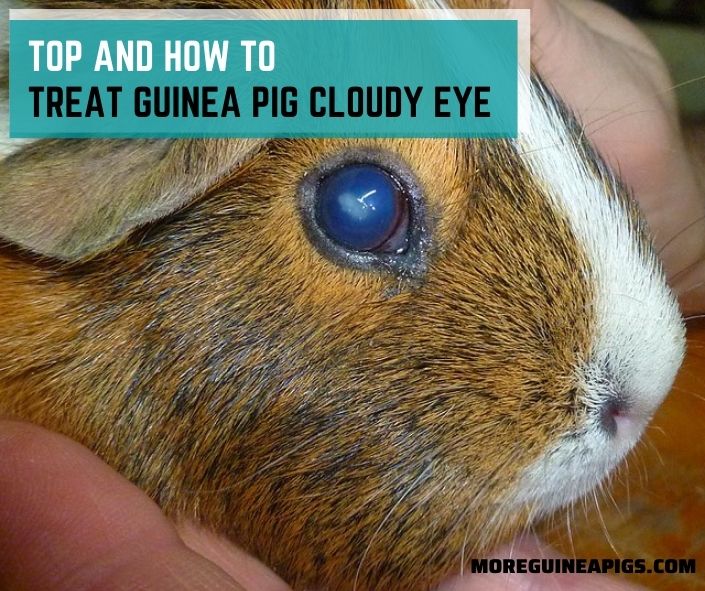
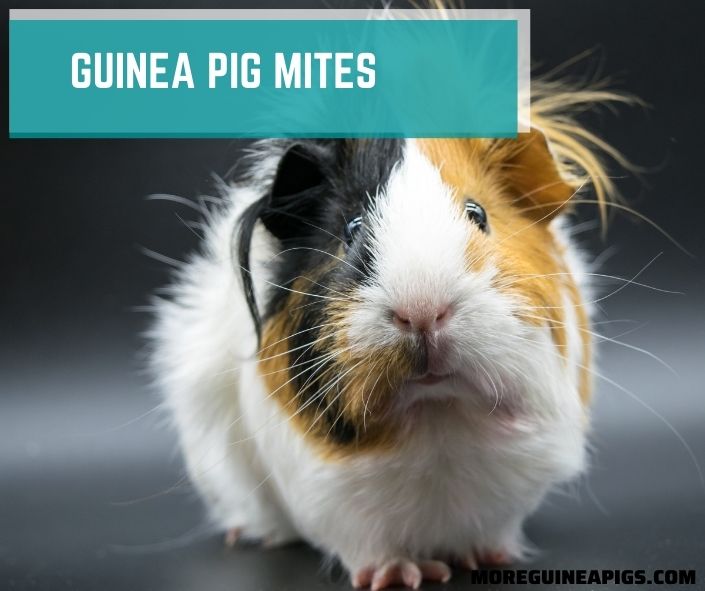
3 Comments
Comments are closed.